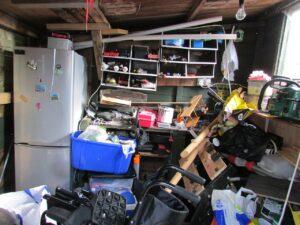Contrary to popular belief, there is no real way to predict with full accuracy if you will develop an addiction or substance abuse disorder. This is because addiction, while treatable, is a chronic medical disease involving complex interactions among brain circuits, genetics, the environment, and an individual’s life experiences, according to the American Society of Addiction Medicine. People with addiction use substances or engage in behaviors that become compulsive and often continue despite harmful consequences. If you’re concerned you might be developing an addiction, it is helpful to know the stages of addiction.
What Does Addiction Mean?
First, let’s clarify what we mean by addiction. There are some risk factors that may contribute to addiction developing in your life. One is if you inherit the genetic predisposition for a gene variation affecting the brain receptors for dopamine. Another is if you have early exposure to trauma that overwhelms your coping ability. You can also be at increased risk of developing addiction if you have depression, anxiety, or PTSD. Finally, having a parent or sibling with an addictive disorder also increases risk.
There is a difference between misuse and addiction. Misuse refers to the use of a substance at high doses or in inappropriate situations that could lead to health and social problems. However, misuse (sometimes called abuse) is not dependence. Addiction on the other hand is a serious, chronic dependence on a substance or mood-altering activity. If you have an addiction, you are unable to stop using the substance or engaging in a behavior even though it has harmful effects on your daily life. It is important to know that addiction is not a moral failing or a lack of willpower. Addiction is a brain disorder involving compulsive substance use despite negative outcomes.
Two Kinds of Dependence: Physical and Psychological Addiction
There are two components of Addiction or Substance Abuse Disorder. Dependence refers to the process by which your mind and body come to depend on a substance so you keep feeling a certain way. Physical dependence is when your body starts to rely on a substance to function. This tends to result in withdrawal symptoms when you stop using the substance. Psychological dependence refers to the emotional or mental components of substance abuse disorder, such as strong cravings for the substance or behavior and difficulty thinking about anything else.
Stages of Addiction
Now that we are clear on terms, let’s go back to stages of addiction. Just how do you slide from misuse into addiction or substance abuse disorder? Many experts break the process down into stages. Depending on the source, this can be 4,5,6, or more stages. For purpose of our discussion, we will use four general stages. The four stages of addiction in order are:
Experimentation
It is common for teenagers to experiment due to peer pressure or curiosity, and adults can do that, too. Other reasons you might experiment with substances or mood-altering behavior include relief of mental stress, easing social anxiety, coping with a distressing life situation, or alleviating physical discomfort. Some people leave it at this but for others, especially those with the risk factors mentioned earlier, experimentation often leads to the next stage.
Regular Use
You might begin to rely on drugs to get through social situations or to enhance certain experiences that aren’t as satisfying without the drug. If the use becomes regular, and if you have risk factors, it can increase the risk of exaggerated mood swings, depression and anxiety, withdrawal from friends and family, and lack of interest in activities they once enjoyed.
Dependency
After repeated use of the substance or engagement in the mood-altering behavior, two things can happen. First, you crave and rely on the experience more. Second, you can build a tolerance, requiring more to get the same effect. So what does this look like in real terms? You prioritize the drug or behavior over other things in life, perhaps neglecting your family, friends, or work. You keep using the drug or doing the behavior despite negative consequences. Or you begin borrowing or even stealing (including time from your employer) to support your use. You need more frequent or stronger doses to get the same effect. And you may try to cut back but have trouble doing so. The psychological craving combined with physical need can result in addiction or dependency.
Addiction
At this stage you spend most of your time thinking about how to obtain the next high. You may not be able to quit even if you want to. Some changes commonly seen in this stage are skipping meals, neglecting basic needs, deteriorating grooming habits, lack of sleep, and no fixed schedule.
Related Reading: How to Help Someone with Drug Addiction
It can be very difficult for someone to decide they need help or to convince someone you care about to get help with overcoming addiction. But there is always hope. In addition to the stages of Addiction or Substance Abuse Disorder, there are commonly used stages of Addiction Recovery, as well.
Five Stages of Addiction Recovery
1.Precontemplation:
In this stage you are unwilling to stop your drug use or behavior because you are either unaware of the consequences of your behavior or in denial
2.Contemplation:
You are aware of the pros and cons of your habit but you may still feel ambivalent about changing your behavior.
3.Preparation:
In this stage you understand that you have a problem with addiction and are ready to make positive change.
4.Action:
You begin changing your behavior and intend to move forward with recovery.
5.Maintenance:
At this point you have sustained behavior change and continue to develop new behaviors to prevent relapse. However, even if you have completely stopped drug use or other harmful behavior, relapse is possible.
Related Reading: How to Motivate an Addict to Stay Clean
There are a variety of treatment options depending on the individual situation. If you think that you or someone you care about may have an addiction or substance abuse disorder, we are here for you with both individual and group counseling at Life Care Wellness. If you’re in northern Illinois, please reach out to us in our Glen Ellyn, Chicago (Jefferson Park), or Sycamore offices.
Rhonda Kelloway is the owner and principal therapist at Life Care Wellness, a group psychotherapy practice in Glen Ellyn, Sycamore, and Chicago (Jefferson Park neighborhood), Illinois. She is a trauma specialist utilizing a Somatic Experiencing framework to utilize the body’s wisdom in healing. She also uses EMDR and a variety of traditional psychotherapy approaches in her work. In addition to being a psychotherapist, she is a trained divorce and family mediator.






